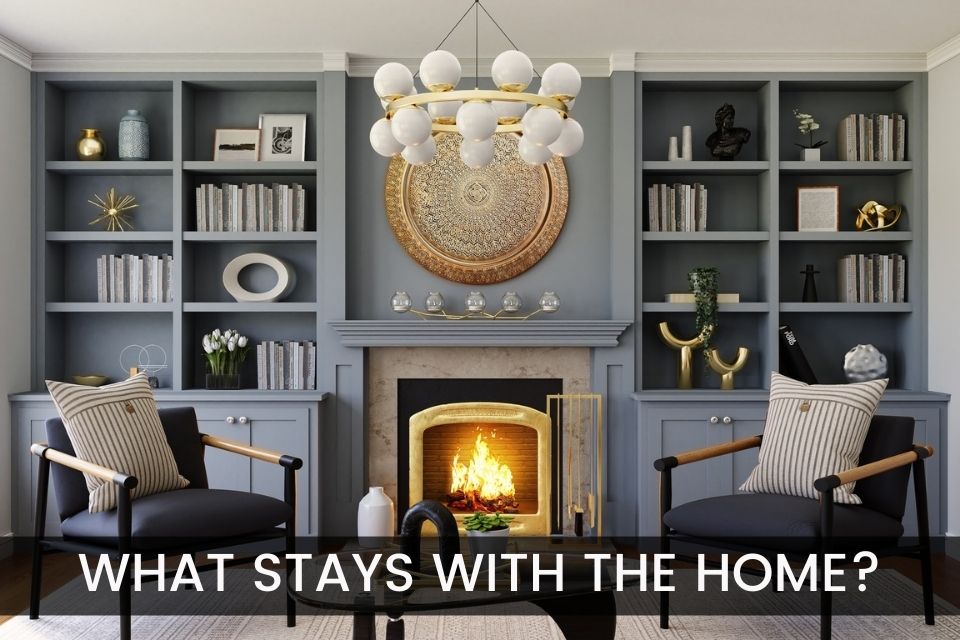More than one seller has been surprised to find that their favorite chandelier is
not theirs to take when they move. First-time home sellers might be especially
confused when confronted with an exclusion form presented by their agent, but
understanding what is, and is not included in the sale by statute is important to
avoid disappointment on both sides.
The first rule of thumb is to consider if the item is nailed down, bolted, mounted,
or planted. This covers a wide range of items both inside and outside the home.
This might seem simple enough, but the debate about what constitutes a
“fixture” has caused many post-sales lawsuits. Fixtures will stay with the home
unless specifically excluded. This includes light fixtures, shelves, cabinets, built-in
shelves, and more.
Consider the mount for the big-screen TV. It might seem logical to assume the
mount would go with the TV when the sellers leave, but technically it’s likely
considered a fixture as it’s bolted to the wall. What about a window-mounted air
conditioner? If it’s sitting in the window, it’s typically personal property, if there is
a hole in the wall to accommodate it, then it’s a likely fixture.
Outdoor items are subject to the same rules. Anything planted in the yard goes
with the home, as does furniture or other items bolted to the ground. In that
scenario, an arbor or patio cover bolted to a concrete slab would stay. Contrary to
everything just outlined, however, curtains typically go with the home.
Clearly, it can be confusing.
If you are ready to buy or sell a home, make sure and discuss with your agent
what you want to add or exclude to the sale. This is the best way to avoid
disappointment at best or a courtroom at worst.

Recent Comments